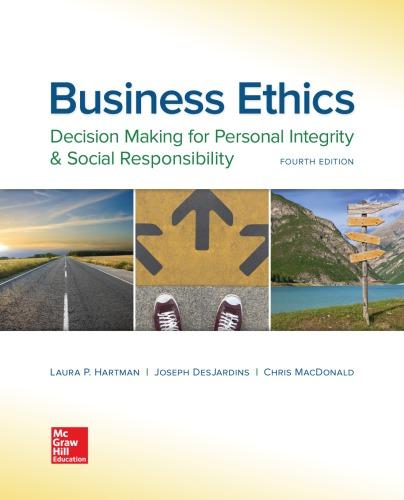We can distinguish due process from just cause in the following way: Imagine a company wanted to
Question:
We can distinguish due process from just cause in the following way: Imagine a company wanted to abandon the arbitrary nature of employment at will and ensure that its employees were treated fairly in any termination decision. Can you imagine how the employment environment in that firm might be different than in other firms? One approach would be to specify the acceptable reasons for terminating an employee.
Obvious candidates would include absenteeism, incompetent job performance, theft, fraud, and economic necessity. This approach might also identify unacceptable reasons for dismissal. Such a policy would be identified as a “just cause” practice because it defines the factors that would justify dismissing an employee for cause. But creating such a list could be a challenge in that one would have to know beforehand all possible reasons for firing someone. As the common law clearly shows, one cannot anticipate all future ways in which something unjust could occur. As a result, a due process policy might be created to complement, or substitute for, a just cause policy. A policy guaranteeing due process, for example, would outline procedures that must be followed before an employee can be dismissed. The process itself is what determines a just dismissal. If an employer followed the process, the decision would be considered just; if the process was violated, then dismissal would be considered unjust. Such procedures might include regular written performance appraisals, prior warnings, documentation, probationary periods, rights to appeal, or response to accusations. Can you imagine other ways in which this hypothetical firm might change standard processes to ensure fairness?
• What are the key facts relevant to issues of due process and fairness?
• What are the ethical issues involved in your decision and implementation?
• Who are the stakeholders involved in your decision?
• What alternatives are available to you?
• How would each of your alternatives affect each of the stakeholders you have identified?
• Where might you look for additional guidance to assist you in resolving this particular dilemma?
Step by Step Answer:

Business Ethics: Decision Making For Personal Integrity & Social Responsibility
ISBN: 211177
4th Edition
Authors: Laura Hartman, Joseph DesJardins, Chris MacDonald






